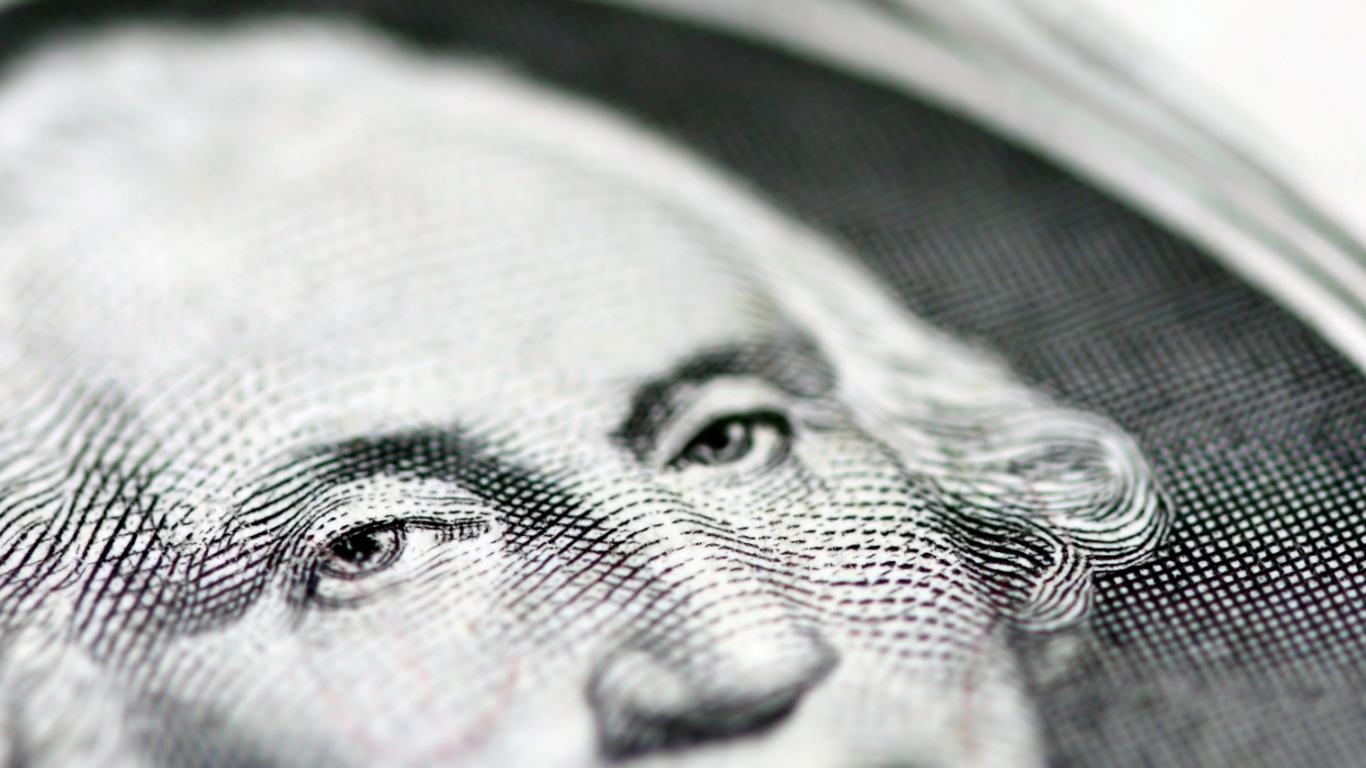Economy
This Is How People Avoid Data Hacks When It Comes to Money Payments

Published:
Last Updated:

The hacking of 106 million Capital One accounts once again showed the potential dangers of exposure of personal data given to financial firms and retailers. Some Americans have avoided this, at least partially, by paying for things the old-fashioned way.
A recent study by the Federal Reserve Bank of San Francisco shows that cash is used in 30% of all financial transactions. The branch of America’s central bank used information from the Diary of Consumer Payment Choice (DCPC). Debit cards were used for 27% of payments. Credit cards accounted for 21% of payments.
Identity theft is a widespread issue in the U.S., with some states reporting over $100 million lost from fraud in a single year. But identity theft reports are not evenly dispersed across the country — these are the states with the most identity theft.
The other major finding is that cash is used in 55% of transactions under $10. The average number of payments of any kind by respondents was 41.
The consumer preference for the use of cash and the number of breaches of bank and retail databases likely are not a coincidence. The latest KPMG Global Consumer Insights study on personal finance habits in developed nations showed that, of about 25,000 people surveyed, 51% said they were anxious about identify theft and 48% were concerned about hacking of their personal, financial or medical data.
One top reason cash is still used in transactions is that, despite the rise in e-commerce, 77% of all financial transactions are still made in person at a physical location. In fact, many of the fastest growing retailers primarily conduct sales at brick and mortar stores, though those expanding most quickly operate online. Overall consumer spending is up. Americans still like to shop, but in a comfortable format, any time of day, making these retailers the fastest growing in the world.
The public’s focus on the Capital One breach comes during the same week as the Federal Trade Commission settled massive claims against Equifax for a 2017 data breach that affected 147 million people. In many cases, people’s driver’s license, Social Security and birthday information were taken. The sum of the settlement could be as high as $700 million. Rules have been set up for people to claim as much as $125 to payments made to protect their identities after that breach. Consumers also will be allowed to make claims for unauthorized use of their accounts directly due to the breach. The two huge hacks are a jarring reminder that data theft incidents can hit tens of millions of consumers at any given time, without warning.
Authors of the San Francisco Fed study concluded, “As retailers and payment providers compete to deliver new ways to shop and pay, data from the 2017 DCPC shows that consumers continue to demand and pay with cash about as frequently as in previous years and that their usage is relatively similar across age groups.” Despite the decades-old ability to use credit cards, and the new trend in digital wallets created by consumer electronics companies like Apple and Google, in addition to financial firms like PayPal and Visa, cash is still king across much of the consumer economy.
If you’re like many Americans and keep your money ‘safe’ in a checking or savings account, think again. The average yield on a savings account is a paltry .4% today, and inflation is much higher. Checking accounts are even worse.
Every day you don’t move to a high-yield savings account that beats inflation, you lose more and more value.
But there is good news. To win qualified customers, some accounts are paying 9-10x this national average. That’s an incredible way to keep your money safe, and get paid at the same time. Our top pick for high yield savings accounts includes other one time cash bonuses, and is FDIC insured.
Click here to see how much more you could be earning on your savings today. It takes just a few minutes and your money could be working for you.
Thank you for reading! Have some feedback for us?
Contact the 24/7 Wall St. editorial team.